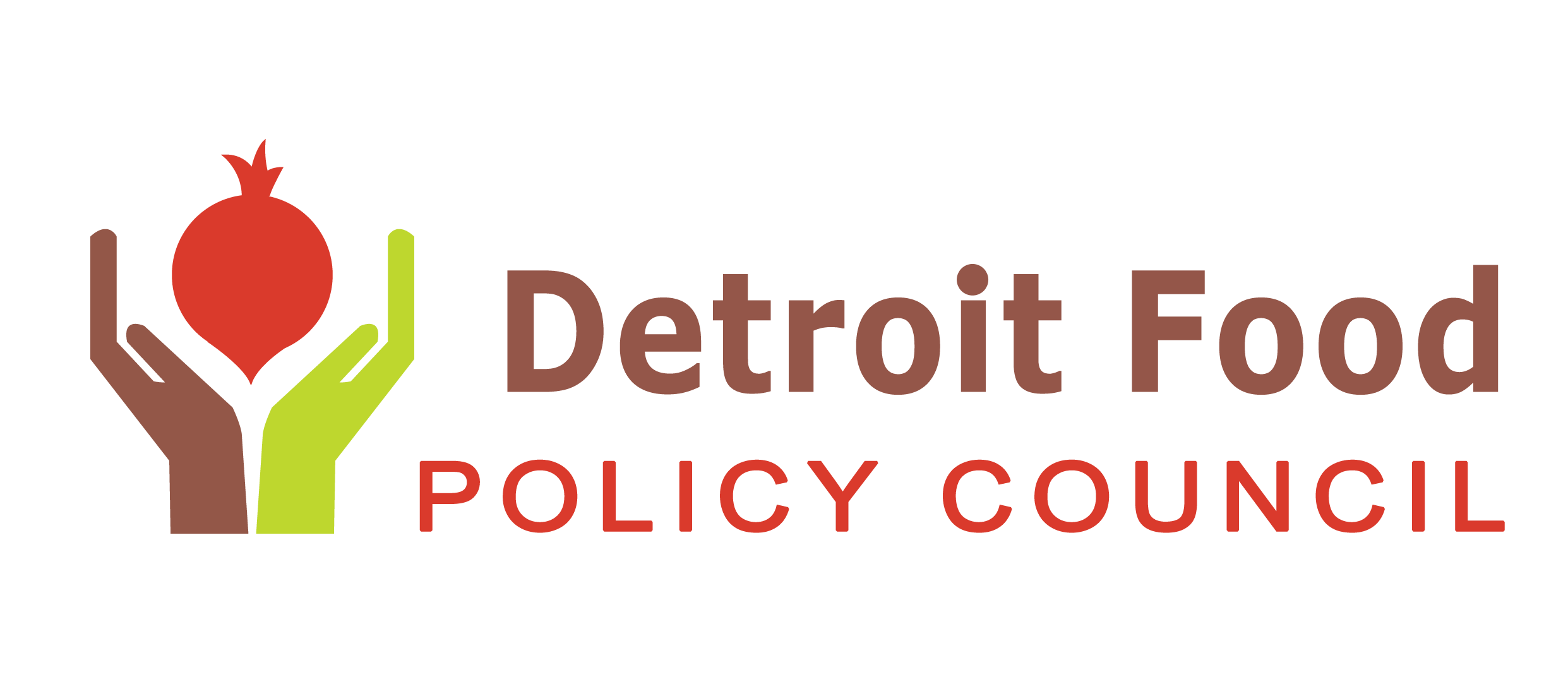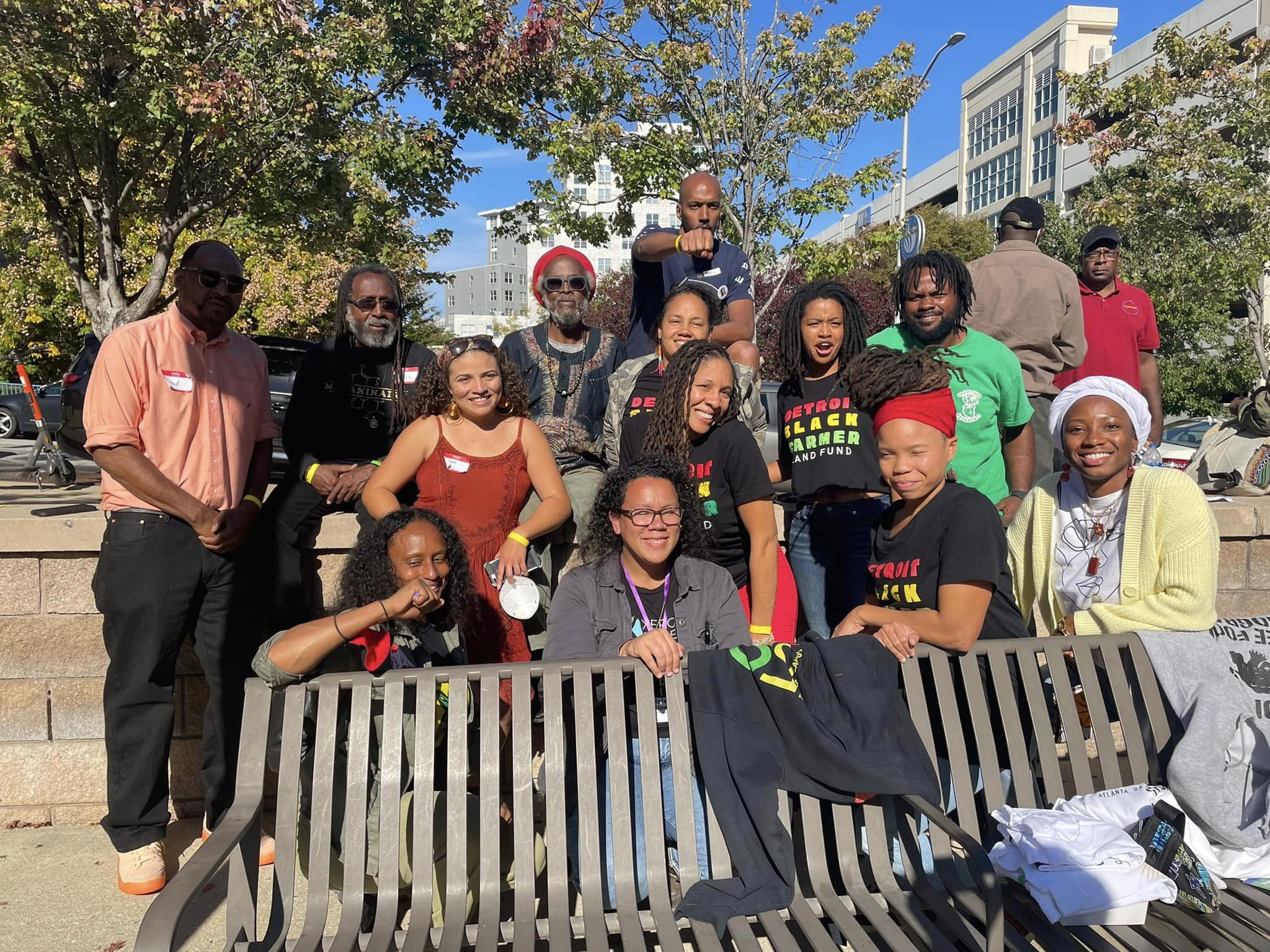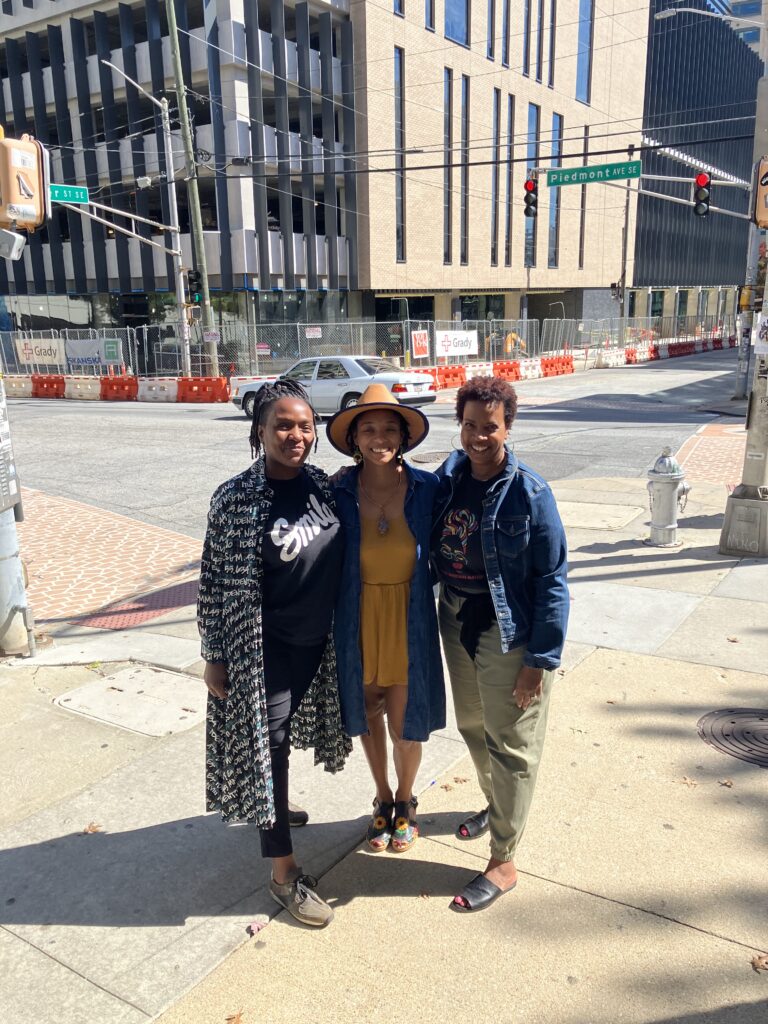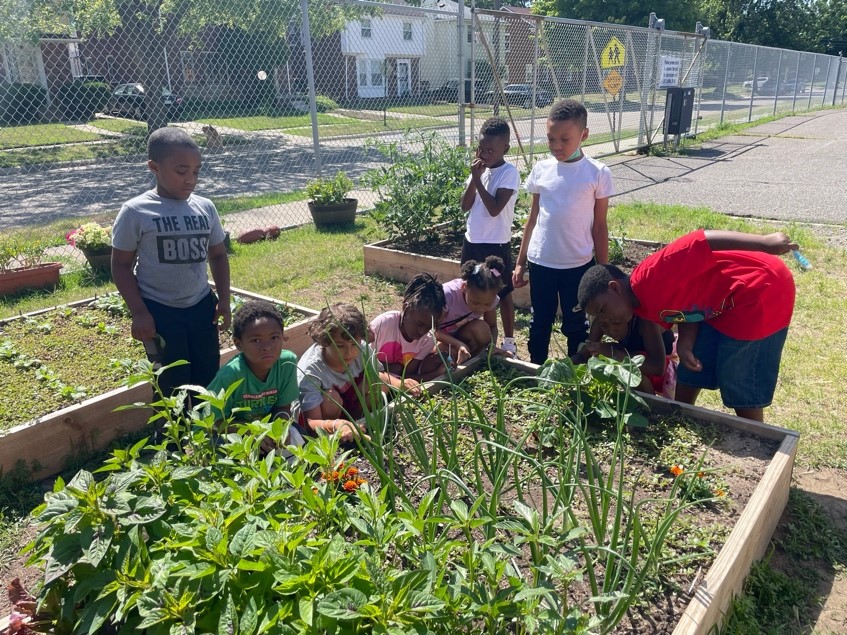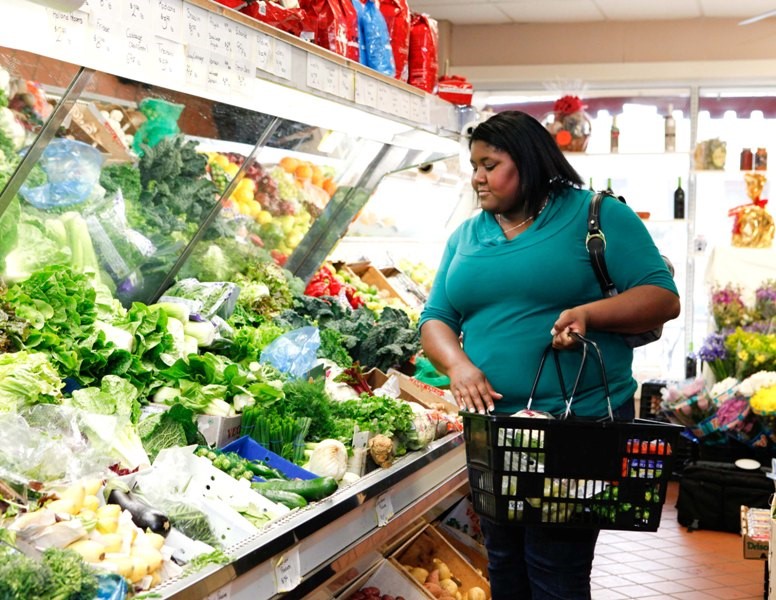Registration is live for Detroit Food 2023: Connecting Policy and the Neighborhood. Come gather with the people who are making change in Detroit’s food system! Register here: Eventbrite
Here’s what to expect:
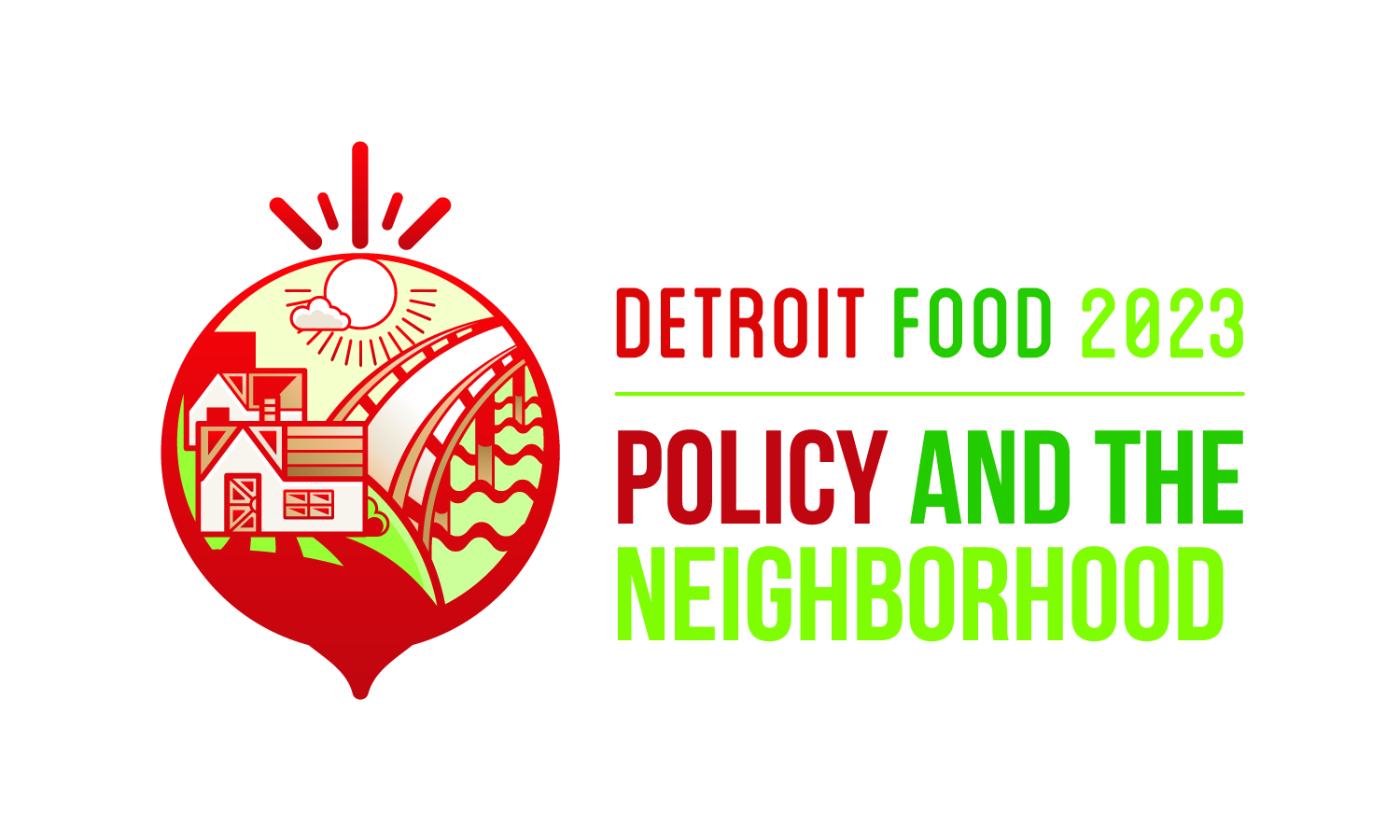
ALL TIMES, PRESENTERS AND TOPICS AE SUBJECT TO CHANGE
Time
9-9:30 AM Registration
9:30 AM-10 AM Welcome
10 am-10:45 AM Panel TBA
10:45-11 Break/Transition
11:00-11:50 Breakout #1
11:50-Noon Passing time to lunch
Noon-1pm Lunch
1:00-1:10 Passing time
1:10-2 p.m. Breakout #2
2 p.m.-2:15 PM Break
2:15-3 pm Panel: Social Storytelling –Connecting Neighbors
3:00-3:10 Break
3:10-4 PM Breakout #3
4:00 PM-4:30PM Wrapup
Friday:
10 AM -10:15 AM Welcome
10:15-11 AM Panel: Restaurant Health Rankings
11AM-Noon Keynote Speaker: Ederique Goudia
Noon-12:30 Q&A with Chef E
12:30-1:30 Lunch and Sendoff
Breakout #1:
Addressing Food Sovereignty Through Inter-Farm Collaboration in SE Michigan
Presenters: Jeremy Moghtader, Dolores Perales, Sarah Clark,
The University of Michigan Campus Farm, Growing Hope, D-Town Farms, Cadillac Urban Gardens, & Oakland Avenue – Farm Inter-Organizational Urban Agriculture Internship program was co-created with a main goal to engage young people from the Unviversity of Michigan, Ypsilanti, and Detroit Farms to solve urban agriculture challenges through intergenerational mentorship and collaborative learning experiences across five different SE MIchigan Farms. The Main goals of this program include;
The history of the program originates from collaboration between University of Michigan (UM) and community partners in Detroit around the “Food Literacy for All” community-academic partnership course at UM. The trust and relationships that were developed through this course paved the way for the first iteration of this Urban Agriculture Program. Since then, with support from APGA/USBG UARP, the internship program has grown to include 5 partner farms/organizations, and become an emerging community of practice for mutual support, learning, and co-creation for participating farms.
The program enables shared interns to engage with and support each participating farm in ways that are most impactful to their respective needs and priorities. For example, interns will increase capacity for raised bed home garden installations, transplant distributions, home gardener technical assistance, growing, harvesting, washing and distributing produce from participating urban farms to community members through the diverse food access programs each partner operates, and through supporting the youth education and leadership development programs of partnering organizations.
Building Community Resilience and Autonomy
Presenters: Amanda Brezzell, Jen Schaap
In times of unrest, our most vulnerable are those who suffer the most. Communities with more resources available to withstand emergencies are considered resilient, and those who can create and maintain their own resources have the added layer of autonomy and that provides more power in decision making. This is especially important in creating and moving policy. With this in mind, this session is designed to remind participants of the power of using your imagination in order to co-create community resilience. They will learn how to imagine with others who are involved in food systems work in order to create the future they want to see. People who are new to the food systems/food policy space may have never had the opportunity to see how something can go from a community designed initiative all the way through the legislature. Others who have been in the work for a while may appreciate the opportunity to re-engage with their work in a creative way and meet new people in the field. Everyone should also walk away having formed at least one new connection.
Feeding MI Families
Presenters: Kate Bauer, Tommara Grice, Theresa Mitchell, Carmen Ramos
The Feeding MI Families project is working to amplify Detroit families’ lived experience of food access. In this panel, project members will share their experiences as part of a trust-based academic/community partnership and present the knowledge learned from over 500 parents regarding how we can improve food access and food assistance in Detroit.
Breakout #2
Bringing Rhythm, Soul & Flavor to the Voting Poll
Presenter: Asha McElroy
Does your vote matter? Bringing Rhythm, Soul and Flavor to the Voting Poll is a workshop designed to help you see yourself in the political process and get involved. We need you in the upcoming 2024 Presidential election and beyond!
Building Trust through Active Community Participation to Make Policy Changes
Presenters: Kristi Evans, Charles Jackson, Charlotte Rapids, Gerry McNeal, Rayshawnda Temple
Attendees will learn from others experiences on how to build trust in different sites/communities through real life hands on experiences.
Developing A Community-Centered Approach to Food Sovereignty
Presenters: Lindsay C. Green, William Harris
Through the lens of the development of the Crane Street Community Garden, participants A comprehensive exploration on how to align food businesses with the needs of the surrounding neighborhoods and the people who inhabit them.
Breakout #3
People Over Policy
Presenters: Ikajaye Amensua
In this workshop the participants will learn the who, what , how and why of who controls policy in their community. We will examine the hierarchy of local politics and how community organizing can effect change in policy making. Giving power back to the people who the policy affects most
Restoring Communities with Edible Landscapes
Presenters: Naim Edwards, Stathis Pauls
This workshop will cover varieties of perennial fruit and nut trees that can be grown in Detroit. We’ll discuss the benefits of growing these crops and current obstacles to increasing their production.
